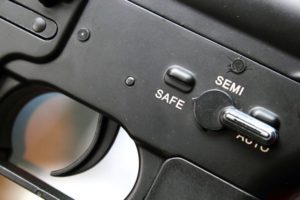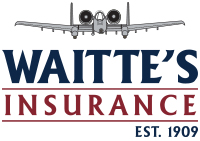 A firearm of any kind is a very serious piece of equipment. For gun owners, firearm safety should be a common sense ideology. However, the majority of gun accidents in the household occur from lack of education or not taking the proper precautions. Whether you’re already a gun owner or looking to become one, you always want to avoid a potentially deadly scenario in your home by using extreme caution and abiding by basic firearm safety protocol. This could mean the difference between protecting your family from home invaders and accidentally harming someone that you love or an innocent bystander.
A firearm of any kind is a very serious piece of equipment. For gun owners, firearm safety should be a common sense ideology. However, the majority of gun accidents in the household occur from lack of education or not taking the proper precautions. Whether you’re already a gun owner or looking to become one, you always want to avoid a potentially deadly scenario in your home by using extreme caution and abiding by basic firearm safety protocol. This could mean the difference between protecting your family from home invaders and accidentally harming someone that you love or an innocent bystander.
Firearm Safety Tip Checklist
Licensing:
It doesn’t matter whether you purchase from a gun show, pawn shop, or online, you MUST register your firearm and obtain the necessary licensing. This is a legal requirement not only in case your gun goes missing, but to ensure accountability in the event your gun is used in a criminal act. Connecticut locals are strongly encouraged to research the state’s required licenses before purchasing their first gun.
Safety Courses:
Inquire at your local gun ranges, as most of them provide the customary training and safety courses for appropriately operating a firearm. As important as it is to earn the proper certifications, it’s even more crucial to pay attention and truly learn what is needed to keep you and your family safe with a gun in your home.
Storage:
Preferably in a locked vessel such as a safe, hide your firearm securely and out of reach of children or those who it is not registered to. Always keep your gun unloaded with the safety trigger on. Additionally, ammunition should be hidden separately away from the gun. These practices will help avoid an accidental discharge and will make it more difficult for intruders to get their hands on a loaded weapon.
Handling the Firearm:
Safely handling a firearm will be discussed in-depth in your training courses, but we still want to stress the topic. Guns should always be in “safety” mode whenever they are in your possession. Furthermore, your shooting index finger should never hover around the trigger until the moment you intend to shoot it. Always keep the barrel of the gun pointed down towards the ground until you’re ready to fire. *Rule of thumb – NEVER point your weapon at anything you do not intend to destroy just in case of an accidental discharge.
Cleaning the Firearm:
This is significant for a few reasons. A poorly maintained and dirty firearm will not always fire correctly. Because of this, many misfires and backfires can occur, causing damage to the weapon and possible injury to anyone around. Any firearm should be thoroughly cleaned inside and out before each use. And just like how it is suggested to be stored, your gun should always be unloaded with the safety on whenever you are cleaning it. Even if you remove the magazine, a single bullet may be loaded into the chamber of the gun; so double, triple and quadruple check to ensure it is completely unloaded.
When to Take It Out:
Most people purchase a gun to protect their families and homes from criminals in or around their property. The hope is that the weapon will never need to be used for this reason, but an immediate threat is one of only a few instances in which it should be taken out. The other reasons would be to clean it or to go shooting at a gun range. Whenever transporting a firearm to a gun range, it should be secured in a locked vessel and stored in the trunk of your car.
Who Should Have Access to it?
Only those with the required licenses and training should ever access your personal firearm. Never lend it out to anyone unless it is within the confines of a range. No weapon should ever be put into the hands of a child. Children are more likely to be killed or injured by a firearm accidentally than from a criminal act. It may be tempting to some to show off their newly-purchased handgun, but it should only be handled by its owner.
Firearm safety is the number one responsibility any gun owner to avoid harm to themselves, their families and their property. Yes, gun incidents can also lead to damage to your home, which in turn, leads to unnecessary insurance claims. Accidents in the home can arise out of nowhere, so you don’t want to just protect yourself physically but also financially with sufficient homeowner’s insurance. In the market for new coverage? We’re always happy to help!
